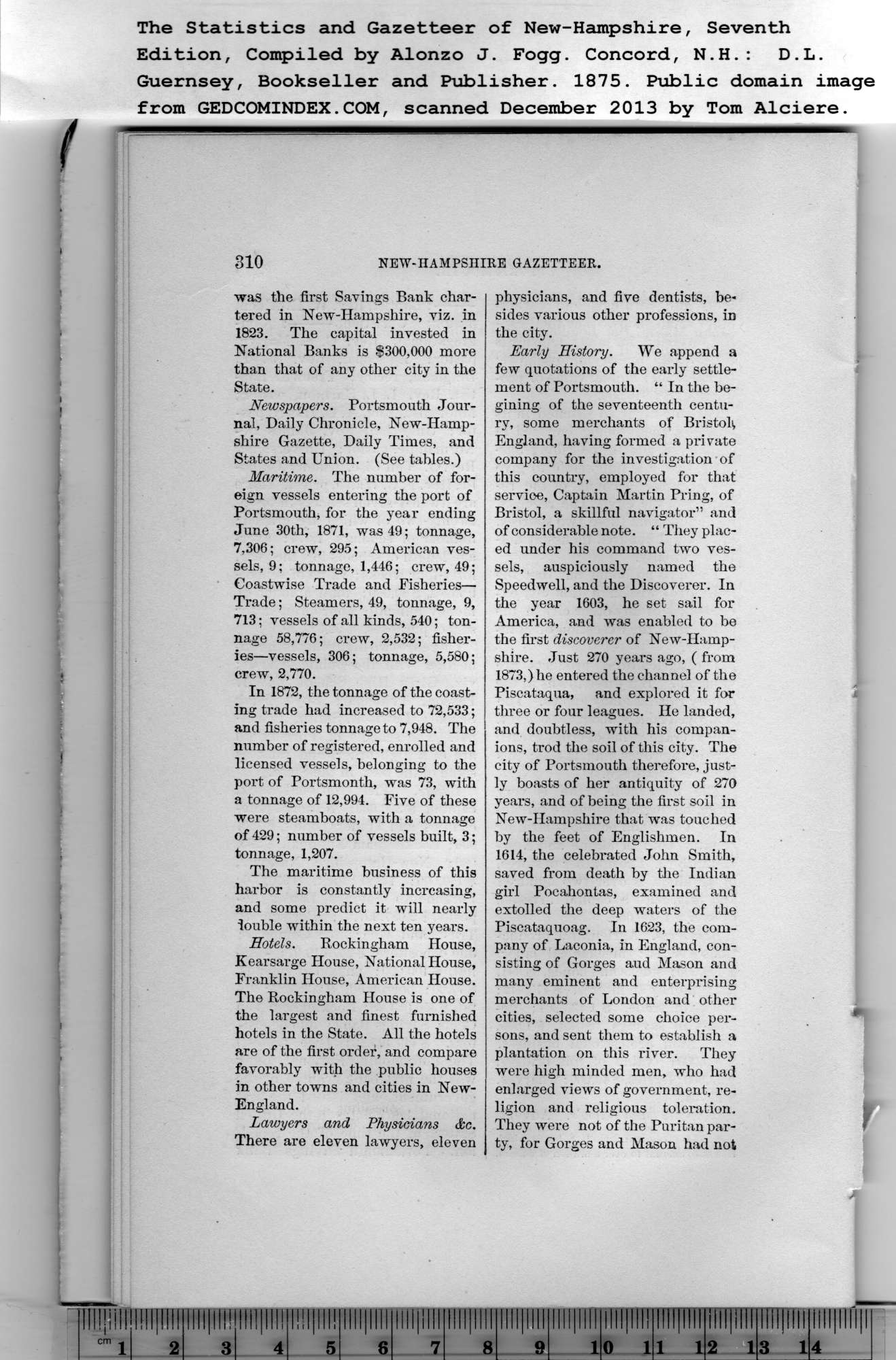|
was the first Savings Bank char-
tered in New-Hampshire, viz. in
1823. The capital invested in
National Banks is $300,000 more
than that of any other city in the
State.
Newspapers. Portsmouth Jour-
nal, Daily Chronicle, New-Hamp-
shire Gazette, Daily Times, and
States and Union. (See tables.)
Maritime. The number of for-
eign vessels entering the port of
Portsmouth, for the year ending
June 30th, 1871, was 49; tonnage,
7,306; crew, 295; American ves-
sels, 9; tonnage, 1,446; crew, 49;
Coastwise Trade and Fisheries—
Trade; Steamers, 49, tonnage, 9,
713; vessels of all kinds, 540; ton-
nage 58,776; crew, 2,532; fisher-
ies—vessels, 306; tonnage, 5,580;
crew, 2,770.
In 1872, the tonnage of the coast-
ing trade had increased to 72,533;
and fisheries tonnage to 7,948. The
number of registered, enrolled and
licensed vessels, belonging to the
port of Portsmonth, was 73, with
a tonnage of 12,994. Five of these
were steamboats, with a tonnage
of 429; number of vessels built, 3;
tonnage, 1,207.
The maritime business of this
harbor is constantly increasing,
and some predict it will nearly
iouble within the next ten years.
Hotels. Rockingham House,
Kearsarge House, National House,
Franklin House, American House.
The Rockingham House is one of
the largest and finest furnished
hotels in the State. All the hotels
are of the first order, and compare
favorably with the public houses
in other towns and cities in New-
England. |
Lawyers and Physicians Ac.
There are eleven lawyers, eleven
physicians, and five dentists, be-
sides various other professions, in
the city.
Early History. We append a
few quotations of the early settle-
ment of Portsmouth. “ In the be-
gining of the seventeenth centu-
ry, some merchants of Bristol^
England, having formed a private
company for the investigation of
this country, employed for that
service, Captain Martin Pring, of
Bristol, a skillful navigator” and
of considerable note. “ They plac-
ed under his command two ves-
sels, auspiciously named the
Speedwell, and the Discoverer. In
the year 1603, he set sail for
America, and was enabled to be
the first discoverer of New-Hamp-
shire. Just 270 years ago, ( from
1873,) he entered the channel of the
Piscataqua, and explored it for
three or four leagues. He landed,
and doubtless, with his compan-
ions, trod the soil of this city. The
city of Portsmouth therefore, just-
ly boasts of her antiquity of 270
years, and of being the first soil in
New-IIampshire that was touched
by the feet of Englishmen. In
1614, the celebrated John Smith,
saved from death by the Indian
girl Pocahontas, examined and
extolled the deep waters of the
Piscataquoag. In 1623, the com-
pany of Laconia, in England, con-
sisting of Gorges aud Mason and
many eminent and enterprising
merchants of London and other
cities, selected some choice per-
sons, and sent them to establish a
plantation on this river. They
were high minded men, who had
enlarged views of government, re-
ligion and religious toleration.
They were not of the Puritan par-
ty, for Gorges and Mason had not |
